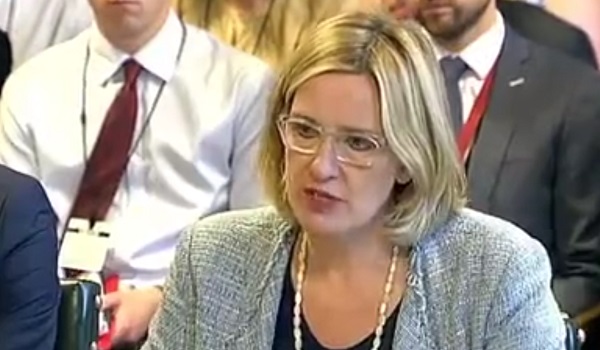No change to central funding but an extra £450 million in 2018, government confirms
Police and crime commissioners are being asked to raise funding themselves next year after the Government confirmed no extra central money will be provided.
Police and crime commissioners are being asked to raise funding themselves next year after the Government confirmed no extra central money will be provided. The amount of money from the Home Office will drop in real terms next year as central grants remain at 2017 levels. The Government plans to partially make up this shortfall by empowering PCCs to increase their take of council tax by £1 a month potentially raising £270 million and by urging forces to make even more efficiency savings. Another £50 million will be given to counter-terror policing and £130 million will be made available for national priorities, bringing the total to £450 million. Opposition MPs have condemned the budget while officers were cautiously optimistic, describing the announcement as a step in the right direction but one that will still leave forces under pressure. Chief Constable Dave Thompson, national lead for finance, said: While todays announcement does not fully meet the level of investment that we identified as necessary, it is a better settlement than last year. It offers greater certainty over the next two years and gives us more resilience to respond to rising demand and sustain current policing services as long as police and crime commissioners increase the council tax precept to the maximum. The budget, announced on Tuesday (December 19), follows months of campaigning by forces and a series of visits by Policing and Fire Minister Nick Hurd to assess demand. Its calculations are based on the 2013/14 allocation formula, as the Governments revised formula has still not been published since errors were exposed in the draft version in 2015. Mr Hurd said it is more important to provide funding certainty over the next two years to help forces plan in an efficient way. The proposed changes to the funding formula will be revisited at the next Spending Review. The overall central grant for England and Wales will be protected in cash terms next year at £12.6 billion. Opposition MPs said this amounts to a real-terms cut of £324 million and described the decision to allow PCCs to increase precepts by £1 a month for band D properties as one that will hammer the local taxpayer. However, the announcement was welcomed by the Association of Police and Crime Commissioners, which clamed it will help forces across the country invest in the prevention and public protection that the public expect and deserve. Earlier this week the Government announced that an extra £50 million will be ring-fenced for counter terror policing, essentially reversing a forecast seven per cent cut over the next three years. Overall counter-terror spending will increase from £11.7 billion in 2015 to £15.1 billion in 2020. The Home Office is also encouraging forces to continue driving further efficiencies around technology and procurement, which it believes could save around £100 million. It claims this may require forces to dip into their reserves, which as of March totalled £1.6 billion across the country, up from £1.4 billion in 2011. The amount held in reserves varies across the country, accounting for six per cent of Northumbria Polices annual funding to 42 per cent of Gwent Polices. The Government intends to publish comparable national data on reserves and to introduce guidance for PCCs to improve transparency. Forces will also be able to access £175 million from the Police Transformation Fund next year. Home Secretary Amber Rudd said: Whether it is your local forces, the national picture or counter terrorism capabilities, this is a strong settlement that ensures forces have the resources they need to keep us safe. Taxpayers will invest more money in forces because the work our officers do to protect us is absolutely vital, and we recognise demand is changing. However, my message to police forces is that this increased investment must mean we raise the pace of reform. For too long embracing digital and increasing productivity have been tomorrows policing problems


